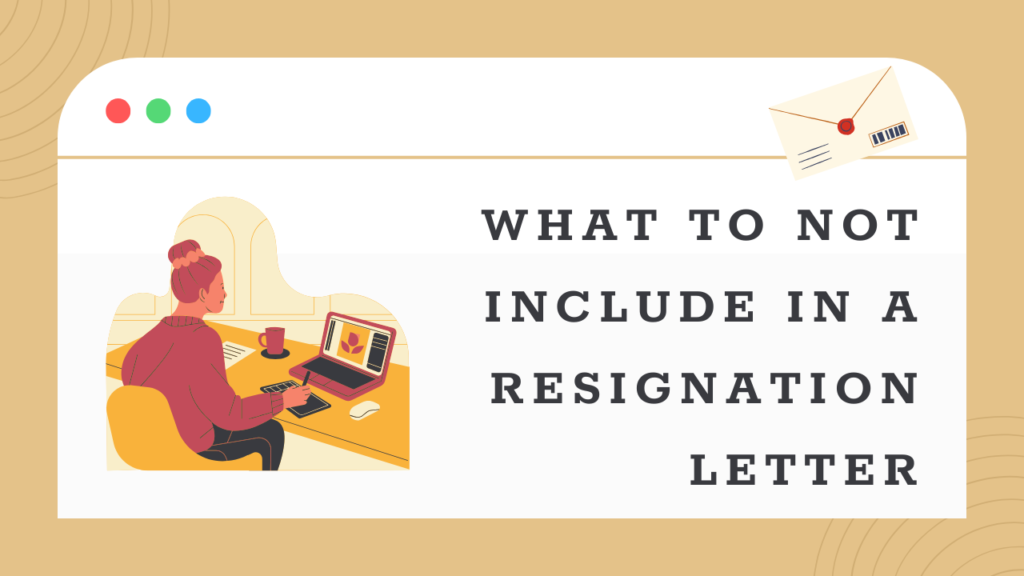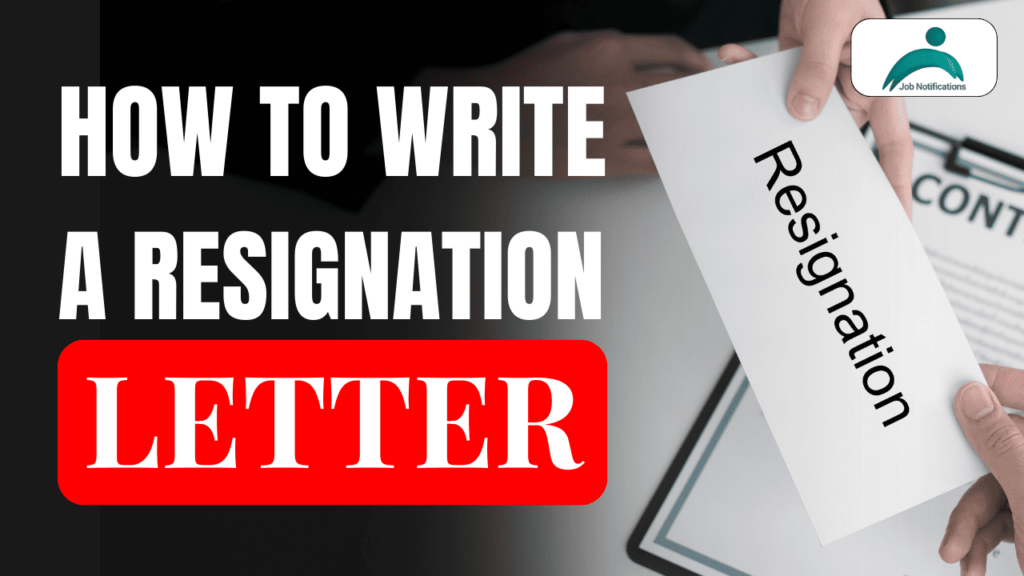Resigning from a job is an essential step and it is important for a candidate to handle it professionally. It is a formal way of communicating with your company about your departure. While many people just let their managers know about it verbally, writing a formal resignation letter is the correct way to make sure that you have a professional exit.
What is a Resignation Letter?
A Resignation letter is a professional document that informs your manager/employer about your decision to take a departure from your current job role. It should be concise, professional, and respectful. A well-customized resignation letter makes it certain that you have a smooth transition. Here is a guide to how to write a resignation letter which covers all the common mistakes you should avoid and key elements you should include to make your letter professional.
What to Write in a Resignation letter
A resignation letter must have various key elements which make it concise, clear, and professional. Here are some elements that make your relationship with the employer positive.
1. Salutation
You should always start the letter with a polite salutation like “Dear (name of the manager)” or if you are addressing the HR department or larger group then you can use “to whom it may concern” but giving a more personal greeting should always be the priority wherever possible.
2. Intention and departure date
You should have a clear statement about your intention to resign from the job role. It is essential to let them know about your last working day so the employer gets time to arrange everything for your departure. For example:
“I am writing this to formally resign from my job role as (your position) at (name of the company), with my last working day bring (date).”
3. Reason for leaving
You may provide a reason for your resignation while it’s not important but if you explain, be professional about it. It is not necessary to give a detailed explanation, just simply state that you are going towards new openings or new jobs that pay better and will help you grow personally. There is no issue if you do not want to provide any reason as well. For example:
“I have decided to go for other openings which will help me to develop in my career.”
4. Gratitude
It is essential to show gratitude towards the opening to work at the organization. A simple and concise thank you for the work experience you had or the skills you gained from the position will leave a good impression. For example:
“I would like to express my gratitude for the opening to work with (name of the company). The skills and work experience I have gained here have been great, and I sincerely appreciate the support I got from the team and the company.”
5. Offer to assist
To have a smooth transition in the resignation which offers to assist with the handover of the duties you had. This will show professionalism and make sure that you leave on good terms. For example:
“I am willing to help during the transition period and make sure to have a smooth handover of my responsibilities.”
6. Contact information
At last, make certain to add your contact information in case your manager/employer needs to reach out to you after you leave. It is not important but it adds a sense of professionalism and makes it easy for the employer to get in touch with you if it is needed. For example:
“Please feel free to contact me at (your phone number) or (your professional email address) for any follow-ups or assistance.”
What to Not Include in the Resignation Letter

It is necessary to have a positive and professional resignation letter, so there are various things you should avoid writing in your resignation letter.
1. Too many details
A resignation letter should be concise, brief, and to the point. You should not add too many details or any personal information. It is not necessary to explain every reason for the decisions you made. Just keep the tone professional and positive, and avoid any lengthy explanations.
2. Vague details
Be specific and clear about your intentions and departure date, don’t leave your manager/employer guessing about anything.
3. Negative comments
Even if you are resigning due to conflict or any dissatisfaction it is best to ignore airing grievances in your resignation letter. Any type of negative comments may burn bridges, and you might need any type of reference from your manager.
Sample Resignation letter
(Date)
Dear (name of the manager),
This letter is to notify you that I am resigning from my position as (your job role), effective (date of departure).
The past (time of work experience) has been a great experience, I deeply appreciate the openings you have provided me which helped me to grow and learn, and I value all the professional relationships I had here. I hope to stay in touch.
I’m now working in the process of (any pending work you have) and will be finished before my last day. (Mention any work-related things that are left to be done or it is in the process).
Please let me know if there is anything I can help with during my transition period. I can be reached at (your professional email address or phone number). I wish you and the company the best.
Sincerely,
(your name)
Conclusion
Sometimes a resignation letter may be intimidating but following the steps mentioned above will help you to have a customized, clear, and professional resignation letter which makes it certain that you have a positive exit from your current job role. Make sure to keep it polite, brief, and professional. It is essential to offer your assistance during the transition which will show your manager/employer that you are committed to the role which makes the process as smooth as possible. Above all, it is necessary to stay respectful and express gratitude for the work experience and openings you had.
FAQs
- Do I need to explain why I’m resigning?
No, it is not necessary to provide the reason for your resignation. But if you are comfortable, you can provide a positive and brief explanation.
- How far in advance should I submit my resignation letter?
It is suggested to provide the resignation letter at least two weeks prior, you can also check your employment contract for any specific requirements.
- Can I leave without any prior notice?
Yes, it is possible to resign without any notice although it is unprofessional and it will impact your future references. It is best to provide notice unless there are emergency circumstances.
- Should I mention any grievances in my resignation letter?
No, it is required to provide any grievances, it is important to keep the resignation letter professional and positive. If you want to provide grievances it should be sent separately.



